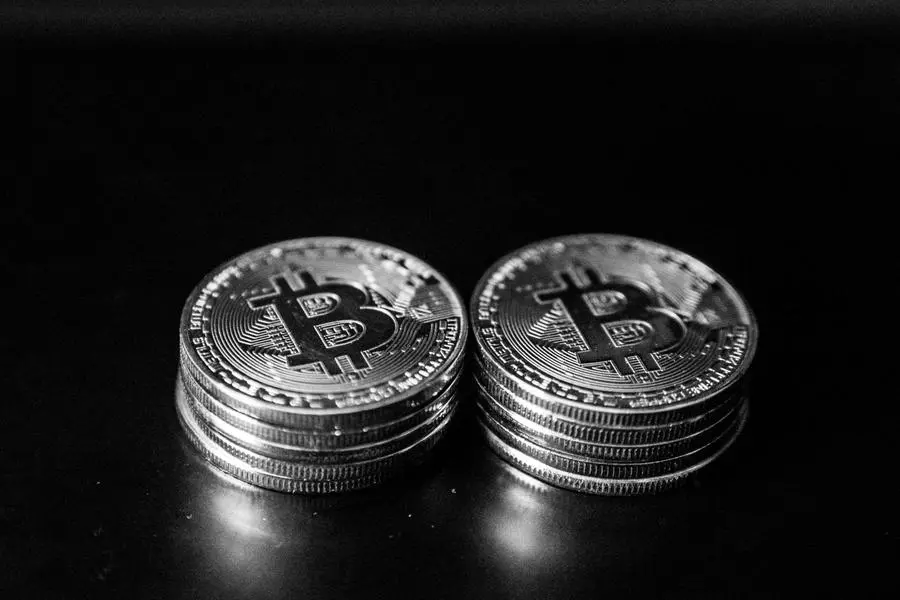PHOTO
AMMAN — Cryptocurrency’s use as a digital payment method is accelerating globally, and certainly, the trend is well on its way to the Middle East after the proper regulations are implemented, said Leila Serhan, senior vice president and group country manager for Visa in North Africa, the Levant and Pakistan (NALP).
The number of people using crypto-linked credit cards is subsequently trending, with Visa reporting around $3.5 billion in crypto transactions in 2021, Serhan added.
"This is not just people buying cryptocurrency, but also people using cryptocurrency to enable digital commerce," she told The Jordan Times in a recent interview.
"Crypto is a trend that we cannot ignore. There are around 400 million people who have purchased crypto around the world, and at Visa, we look at ourselves as a network of networks, and crypto networks are definitely one of the networks where we want to facilitate the exchange of money," Serhan said, adding that crypto remains "a strong investment vehicle" that continues to enjoy popularity amongst investors.
As such, Visa has partnered with over 75 crypto-enabling exchanges.
"What we have done with many exchanges is that we have allowed users to issue Visa cards that hold cryptocurrency, and allow them to go through the 80 million merchants around the world that accept Visa and use their crypto card to buy any product. This is what we are focusing on in this regard currently, and of course, regulations need to allow it,” she said, adding that if a country’s regulations allow for it, the company will facilitate the transactional use of cryptocurrency.
Visa cards work in approximately 200 countries, and 3.9 billion visa cards have been issued across the world.
During its recent earnings call, Visa reported that customers have conducted $2.5 billion in payments with crypto-linked cards in the first fiscal quarter of 2022. This figured comprises 70 per cent of the company’s crypto volume for all of fiscal year (FY) 2021, according to a report by CNBC, citing Visa CFO Vasant Prabhu.
“To us, this signals that consumers see utility in having a Visa card linked to an account on a crypto platform. There’s value in being able to access that liquidity to fund purchases and manage expenses, and to do so instantly and seamlessly,” Prabhu, quoted by CNBC, said.
Recently, the Middle East has witnessed a notable uptick in crypto investment and transactions.
Illustrating the surge in crypto, Serhan referred to recent Dubai regulations of the digital medium. The Dubai Law No. 4 of 2022 regulating Virtual Assets in the emirate (VA Law) was issued in March of this year. The VA Law established the Dubai Virtual Assets Regulatory Authority (VARA), which was tasked with creating a legal framework for the virtual assets sector.
"We have seen many crypto exchanges setting up shop in Dubai, such as crypto.com, Binance and others," Serhan added.
During the interview, Serhan said Buy Now Pay Later (BNPL), a digital, installment-based payment plan, is likewise gaining popularity in the Middle East.
As of 2021, approximately 51 per cent of Jordanian consumers report a preference for using digital payment methods in ecommerce, compared with 48 per cent in 2020, according to research from Checkout.com and YouGov’s survey of over 13,000 consumers across several Middle Eastern countries.
The study also showed that 20 per cent of consumers in Jordan used BNPL in the past 12 months.
Thirty-one per cent of those surveyed reported that they had never used BNPL, but plan to in the next 12 months. An additional 30 per cent said that they have no intention to try BNPL at present.
Further economic digitalisation was recognised as the key to achieving the nation’s 2025 Economic Modernisation Vision among 48 per cent of Jordanians surveyed. Advancing digital skills education in the country was similarly considered critical to achieving Jordan’s economic goals, the survey reported.
With the surge in ecommerce comes an increased demand for reliable cybersecurity protection. As for Serhan, the Senior Vice President stressed that Visa invests heavily in cybersecurity.
"We are proud that there is no fraud on our network. Cybersecurity is one of our big investments, as fraudsters are becoming more and more intelligent as we move into the digital world," she said.
As fraudsters and hackers further develop their methods of theft, many fall victim to their techniques. Thus, digital financial literacy is of great importance to prevent such attacks. To combat this issue, Visa has embarked on several efforts to educate users on ecommerce safety and digital financial literacy.
Ultimately, Serhan said, digital payments are vital for increasing the financial inclusion of small and medium enterprises in the Middle East.
"Accepting digital payments is very feasible for small-and medium-sized businesses, as once they start using these payment systems, they can acquire a credit score and find easier access to finance and small loans," she added.
Mohammad Ghazal





















